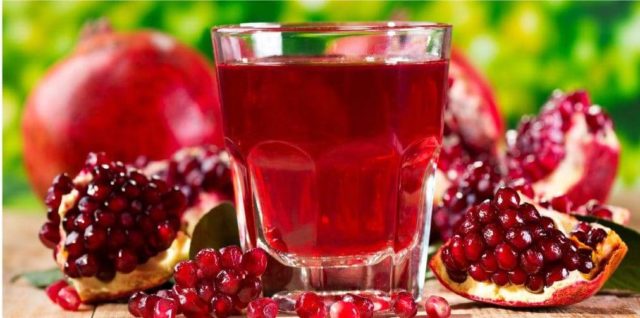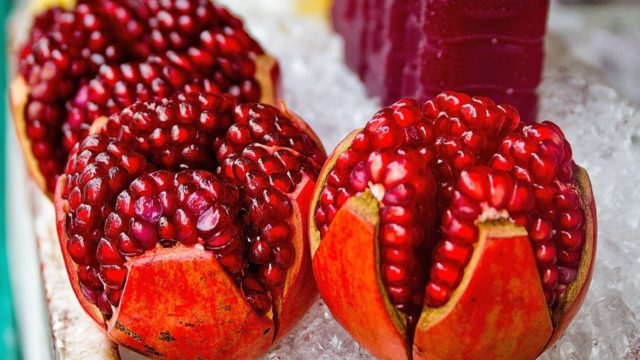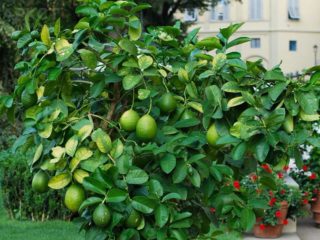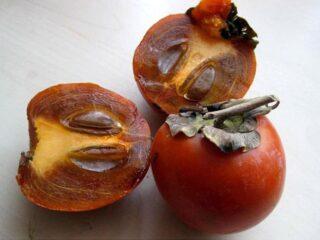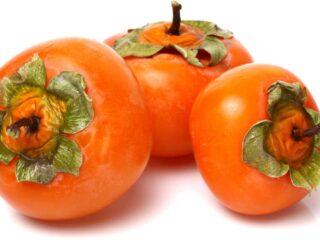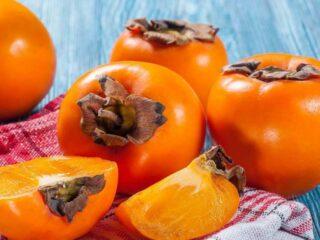Content
- 1 Is it possible to eat a pomegranate with GW
- 2 Can pomegranate juice be used for breastfeeding?
- 3 Why pomegranate is useful during breastfeeding
- 4 The introduction of pomegranate into the mother's diet when feeding an infant
- 5 Rules for using pomegranate during GW
- 6 Precautions
- 7 Contraindications to pomegranate when breastfeeding
- 8 Conclusion
- 9 Reviews of pomegranate while breastfeeding
Every nursing mother should monitor her diet as closely as possible. Breastfeeding pomegranate, like any other bright red fruit, can cause an allergic reaction and rashes in a baby. However, if you follow the correct diet, the maximum benefit from the use of this fruit is achieved.
Is it possible to eat a pomegranate with GW
Like most exotic fruits and vegetables, pomegranate is a concern for most women who are breastfeeding their baby. Any fruits of bright colors are the strongest potential allergens, therefore, the introduction of pomegranate into the mother's diet when feeding an infant should be done gradually.
You should be especially careful when choosing the fruits themselves. The fruits should be as ripe and sweet as possible. Not fully ripe pomegranates have a sour taste, so they can easily cause a disturbance in the digestive system, and not only in the child, but also in the nursing mother herself. The fruits should be free of rot, as well as marks from drops and impacts.
Can pomegranate juice be used for breastfeeding?
As with the fruit, pomegranate juice should also be consumed as carefully as possible when feeding a newborn. A drink bought in a supermarket is most likely diluted, therefore the concentration of nutrients and its possible harm to the body become less significant.
It should be understood that juice from a supermarket may contain a large amount of dyes and preservatives that are harmful to the child. The way out of this situation is to independently make a drink at home. So the mother can completely protect herself and the child from low-quality products.
To get high-quality juice from ripe fruits, you need to peel the pomegranate well and sort the grains by hand. It is important to remove films, greenish parts and grains damaged by mold. Homemade pomegranate juice for nursing mothers can be diluted with carrot or beetroot juice - this will reduce its acidity.
Why pomegranate is useful during breastfeeding
Pomegranate is a storehouse of chemical compounds beneficial to humans. It contains in its composition the most useful amino acids that play an essential role in the proper formation of the nervous system. The fruit is also rich in readily soluble polyphenols necessary for the body, which act as antioxidants.
Pomegranates and pomegranate juice contain a whole range of vitamins, including:
- vitamin C - a stimulant of the immune system and an accelerator of hemoglobin production;
- vitamins A, E and PP, which together improve blood circulation, form the skeletal system and help protect the cells of the body;
- vitamin B9, which is essential for the proper development of cells of the central nervous system and the improvement of cell regeneration.
The fruit is also rich in a variety of micronutrients. Calcium helps in the formation of the skeletal system. Magnesium is an essential element for the formation of nerve fibers. Iron improves blood circulation.Potassium improves brain function and protects the cardiovascular system.
The introduction of pomegranate into the mother's diet when feeding an infant
A nursing mother can eat pomegranate if certain conditions are met. In the first 2 months of breastfeeding, you should completely abandon such a product as pomegranate - it can cause even minimal allergic reactions, affecting the chemical composition of breast milk.
Pomegranate, like other foods with a sour and sweet taste, changes the taste of mother's milk, so even at 3 months of breastfeeding, you should not rush to introduce it into the diet. Such a change in the habitual taste can cause the child to completely refuse to eat.
Most pediatricians recommend starting pomegranate and pomegranate juice as early as 6 months of age. At this time, his digestive system becomes more stable and ready to digest new foods. In addition, by the age of 6 months, in addition to breastfeeding, a variety of complementary foods begin to be introduced to the child.
Rules for using pomegranate during GW
In order not to harm the body of the mother and child during breastfeeding, it is necessary to follow a clear plan for its introduction into the diet. Experts say that the starting dose of pomegranate for a woman should be minimal. The best option would be to consume 4-5 grains per day. After a couple of days, it will be necessary to pay attention to the general condition of the child, in particular to the possible increase in intestinal colic. An allergic reaction usually does not manifest itself immediately. If there are no rashes and slight redness on the baby's skin, most likely, the child's body is resistant to the use of this fruit.
It is also important to pay attention to the baby's behavior and his stool - if he is normal, you can gradually increase the size of the consumed portions of the fruit. Of course, during the feeding period, the mother should observe moderation in the diet, so even if the pomegranate does not harm the child's body, one should not neglect the possible consequences.
In no case should you use bones. They contain a huge amount of chemical compounds and tannins that negatively affect the child's gastrointestinal tract. A great option would be to make your own juice or buy it at a store.
Beginning to drink pomegranate juice while breastfeeding should be done with extreme caution. It is best to start with a few sips a day and constantly observe your baby's behavior after breastfeeding. If no rashes are found, and the child has no problems with stool, you can gradually increase the dose of juice. However, it should be remembered that the maximum dose for the mother is no more than 200 ml per day.
Precautions
To avoid the possible manifestations of the negative consequences of eating pomegranates while breastfeeding, you must follow a few simple rules:
- Do not show excessive fanaticism by adding pomegranate to your diet. It is better to wait a little while the child's digestive system has formed at least a little.
- Do not eat too much fruit and do not drink large portions of juice, even if your baby does not show signs of an allergic reaction.
- Do not drink juice during periods of stool fluctuation in a child. The acid contained in it does not contribute to the normalization of the gastrointestinal tract.
Breastfeeding mothers should listen to dentists. To avoid problems with tooth enamel, they recommend diluting the juice with water in a 1: 1 ratio to avoid tooth decay due to the high amount of acid contained in the juice. Also, adding sugar or a substitute to it helps to change the acid composition of the juice.
Contraindications to pomegranate when breastfeeding
The most important factor prohibiting the use of pomegranate and pomegranate juice during breastfeeding is the child's tendency to allergic reactions. At the first symptoms of allergy, the mother must immediately exclude this product from her diet. A second attempt to enter the menu is desirable only after a couple of months. If the reaction is repeated, you should consult a doctor for advice.
Pomegranate juice has the strongest stool-strengthening effect. This can lead to long-term constipation in a nursing mother. Constipation is one of the causes of hemorrhoids in women, so the seemingly harmless fruit can lead to serious health problems. In no case should pomegranate juice be consumed during lactation for women suffering from gastritis and pancreatitis. The acidity of the juice will aggravate the disease.
It is forbidden to use pomegranate juice for lactating women who have problems in the oral cavity. Since the juice contains a large amount of acid, its regular use contributes to the destruction of tooth enamel. Given that all women face dental problems during feeding, it is better to protect yourself by avoiding excessive use of this product.
Conclusion
When breastfeeding, pomegranate should be administered as carefully as possible. At the first onset of symptoms of allergy or stool disorders in a child, it is necessary to completely stop using it. If the introduction of a new fruit was successful, you can gradually increase its amount in the diet without fanaticism.
